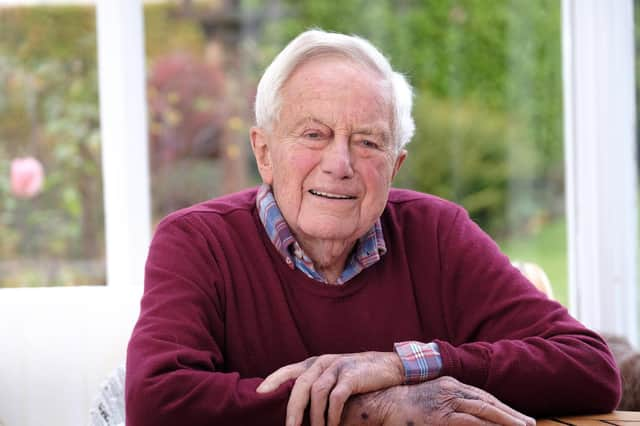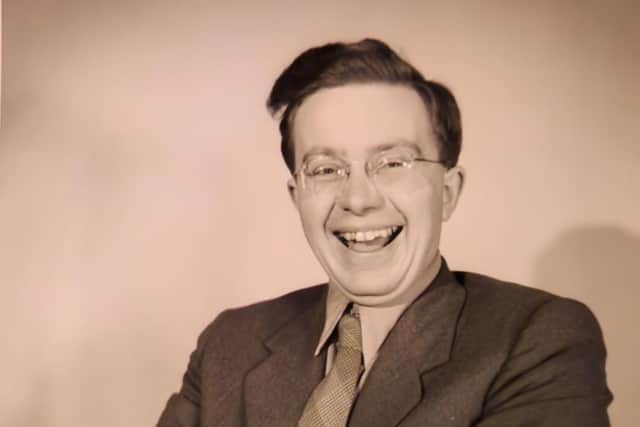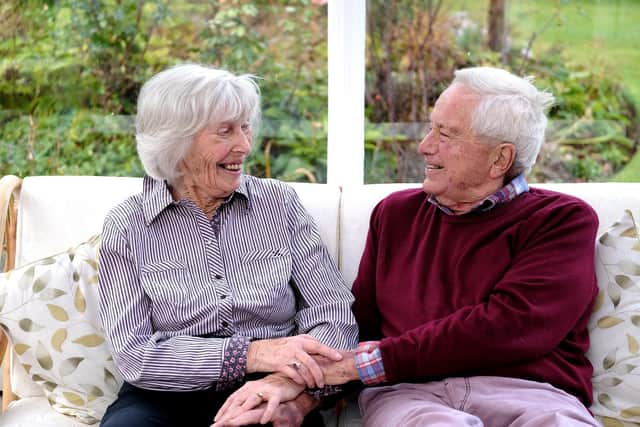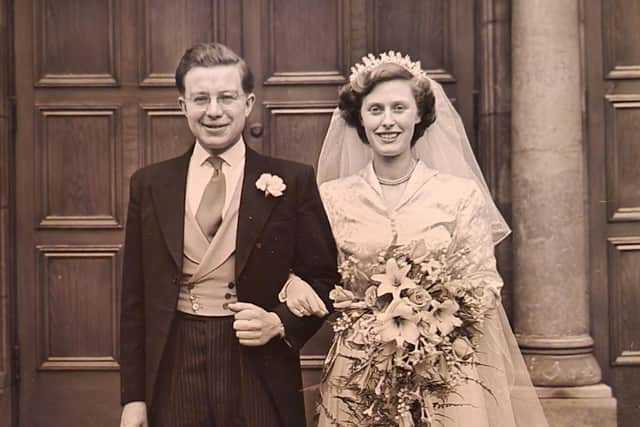REMEMBRANCE: Scalby man shares memories of growing up in Scarborough during World War Two


In the week that we remember those who serve our country, former printing company director, Tom Pindar, 94, has shared memories which illustrate just what life was like in the town during the Second World War.
Mr Pindar said: “In the 1930s Scarborough Hospital was new. The Duke of Kent opened it as soon as the war began.
Advertisement
Hide AdAdvertisement
Hide Ad“I started at the boys school when I was 11-years-old, and we were sent to the hospital to put in sandbags, that was at the start of the war.


“Scarborough had a good war. There was plenty going on.
“I wasn’t keen on swotting and we did a lot of gardening and still played some games.
“The garden was at what’s now the Scarborough Sixth Form College Westwood Building, and there were a lot of vegetable patches there.
“We grew cabbages, cauliflowers, potatoes, carrots and there was also a piggery where we bred three or four pigs for meat. Everybody took some home.
Advertisement
Hide AdAdvertisement
Hide Ad

“I was the only child of elderly parents, my dad was a special constable during World War One and he had a medical card.
“He did all sorts of other voluntary jobs during World War One and World War Two too.
“There was an old chapel on Castle Road, it was a tall building, with a big roof and we had to fire watch the big gutter.
“Various people used to take turns to, maybe two nights per week, but mercifully we never had any trouble
Advertisement
Hide AdAdvertisement
Hide Ad

“We lived in Manor Road and I was very proud to have a tiny shrapnel hole in my bedroom window from the 1914 bombardment.
“The nearest the World War One shells fell was the bottom of Wykeham Street near Andy Hire, that house was damaged and there were some killed there.
“During World War Two, the houses along Commercial Street were damaged near the Railway Line.
“We only went to school half the time. Schools from Hull and North London evacuated to Scarborough and the schools did half for those visiting and half for the resident children.”
Advertisement
Hide AdAdvertisement
Hide Ad

Mr Pindar’s wife, Margery, grew up in Hull and was evacuated to Selby during the war. She said: “We went to school from 9-12, that was the pattern across the country.”
“It was just part of life, they were nice people.”
Tom said “ We had relatives in the States and my parents gave me the choice of whether or not I wanted to go there, so I declined the offer.
Mrs Pindar said: “One girl came back with an American accent, short skirts and lipstick. The following week, all our skirts went up. The week after that, they all went down again!
Mr Pindar continued: “In Scarborough we had a great time, there were a great number of service bodies in town.
Advertisement
Hide AdAdvertisement
Hide Ad“There were three main hotels where they stayed, The Grand, The Royal and The St Nicholas.
“They had air crew in training there - the lads who were doing basic training before they went flight training.
“They brought a lot of life and vitality to the local dances.
“The Royal Marine band was evacuated from Deal, Kent. There was lots of music.
Advertisement
Hide AdAdvertisement
Hide Ad“There were lots of Air Force and Army and the WRNs were here too, they were codebreakers listening to Japanese broadcasts up on the Racecourse.
“On top of all that, there were all of the army units in the build up to D-Day.
“I remember the A64 on the Eastbound side became an ammunition dump in the build-up to D-Day.
“It was stacked with shells and ammunition along the length of the dual carriageway, from Whitwell Hill all the way to York. It seems almost incomprehensible now.
Advertisement
Hide AdAdvertisement
Hide Ad“For a young boy, it was an immensely exciting sight, and then it all vanished overnight and went off to D-Day.
“We used to have 1,000 people at Queen Street on a Sunday evening, lots of canteens for service people, we made lots of friends and acquaintances, some of the friendships lasted for years.
“Very vibrant was the town.
“And then, for young people, there was the sudden shock that someone you knew or had played with was dead or missing in action.
“One young man I was at school with, Maurice Musgrave, signed up as soon as he was old enough.
“He was killed in action as an air gunner.
Advertisement
Hide AdAdvertisement
Hide Ad“You couldn’t believe that someone you had played marbles with was dead.
“Whitby had an ammunition depot and I used to go to Robin Hood’s Bay and Whitby and watch the boats, they would come in very close.
“It was fascinating to watch boat after boat after boat come by with barrage balloons to keep low-flying aircraft away.
“The bomber raids came from the far side of York right to the coast.
Advertisement
Hide Ad